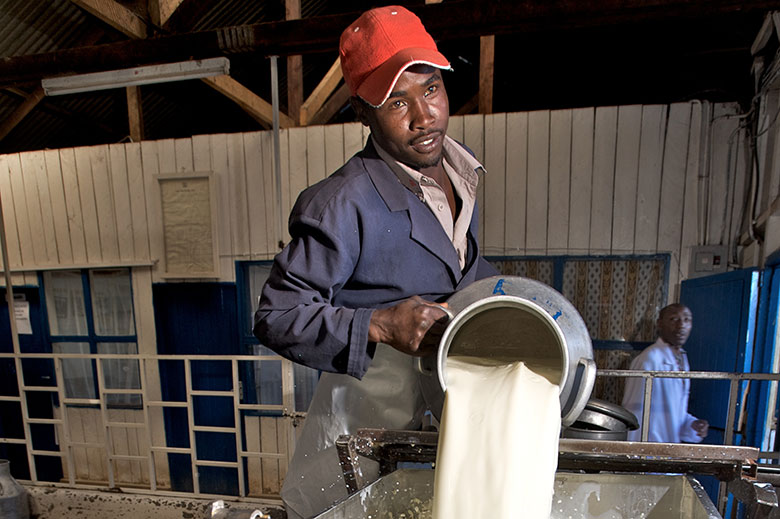Heifer International has been awarded a $25.5 million grant from the Bill & Melinda Gates Foundation to build upon existing work of the East Africa Dairy Development program that is working to create a robust dairy industry in the region where demand for fresh milk is close to outstripping supply.
The EADD program—which began in 2008 with an initial grant from the Bill & Melinda Gates Foundation of $42.8 million and operated in Kenya, Rwanda and Uganda—strives to solve the problems that were creating a shortage of fresh milk on the market in eastern Africa.
The first step was to work with small-scale farmers and to teach them how to keep their animals healthy and get higher milk yields. The next step was to connect those farmers to a market in which they could sell the milk regularly for a consistent price, then to ensure processors who bought the milk could better control quality and safety. All actors in this chain needed to make a profit.
In its first five years, EADD provided extensive training on dairy husbandry, business practices and operation, and marketing of dairy products to the 179,000 farming families in the program. Heifer and its partners, including TechnoServe, International Livestock Research Institute, Africa Breeders Services and The World Agroforestry Center, also developed 27 milk collection hubs, strengthened 10 existing hubs, and formed 68 farmer business associations to manage the plants.
Since then, EADD has grown to be one of the leading market-oriented development initiatives in eastern African, earning the farming families more than $131 million.

The intention of EADD II is to strengthen the model implemented in its first five years to make the program scalable and replicable in other developing countries and become a model of success. It will expand the work into Tanzania while continuing work in Kenya and Uganda.
EADD will implement new technologies and practices, as well. In Kenya, where the dairy industry is more mature, Heifer and its partners will help set up new technologies, like using new approaches to fodder production, finding alternative energy sources, and working with Seattle-based Intellectual Ventures to create and market a better milk transport system.
“What we’re trying to do here is change the face of an industry,” said Elizabeth Bintliff, vice president for Africa Programs. “We will be paying attention to activity in the dairy chain at all levels, from production systems at the farm level to the hubs to processors and policy makers, all the while working to ensure that the gains of the project are not just economic but social as well.”
Ultimately, Heifer is strengthening the infrastructure behind each glass of milk that will be available in East Africa. By improving the value chain that allows for profit on each level, over 1 million people will have access to food, jobs, income, education, financial and medical services, breaking the cycle of extreme poverty throughout the region.
